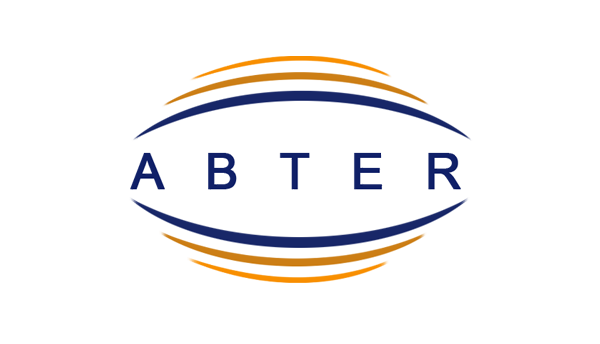Well Screens and Gravel Packs: An In-Depth Analysis of Features, Applications, and Benefits
Table of Contents
- Introduction to Well Screens and Gravel Packs
- Key Features of Well Screens and Gravel Packs
- Materials Used in Well Screens and Gravel Packs
- Dimensions and Customization Options
- Importance of Slot Size and Particle Matching
- Benefits of Using Well Screens and Gravel Packs
- Types of Gravel Options
- Applications of Well Screens and Gravel Packs
- Technical Specifications of Well Screens and Gravel Packs
- Advantages of abtersteel Well Screens and Gravel Packs
- Comparison of Material Options
- Installation and Operational Efficiency
- Maintenance and Longevity
- Market Trends and Innovations
- Conclusion
1. Introduction to Well Screens and Gravel Packs
Well screens and gravel packs are indispensable components in water wells and oil & gas extraction. These products act as filtration systems, ensuring efficient sand control and facilitating uninterrupted operations. The integration of advanced materials and precise engineering enhances their effectiveness, making them a cornerstone in the drilling industry.
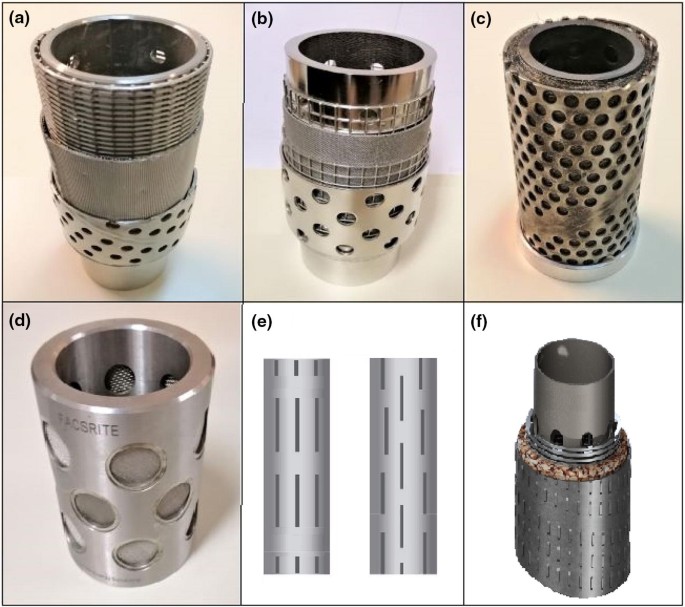
2. Key Features of Well Screens and Gravel Packs
Well screens and gravel packs stand out due to their unique features:
| Feature |
Benefits |
| Maximum open areas |
Improves fluid productivity while maintaining structural integrity. |
| Precise slot sizes |
Facilitates sand-free operation, reducing maintenance requirements. |
| Minimal entrance velocity |
Ensures low pressure drops, boosting system efficiency. |
| Stable and reliable construction |
Enhances operational safety with high strength and durability. |
| Superb corrosion resistance |
Minimizes risks associated with environmental wear and tear. |
| Less clogging risks |
Promotes consistent performance by reducing operational disruptions. |
3. Materials Used in Well Screens and Gravel Packs
The materials used for these products are critical in determining their performance and lifespan. Common materials include:
- Stainless Steel 304/304L, 316/316L: Provides robust corrosion resistance, ideal for harsh environments.
- Monel or Required Alloys: Specialized alloys designed for unique operational needs, ensuring strength and flexibility.
Material Comparison Table:
| Material |
Corrosion Resistance |
Strength |
Applications |
| SS 304/304L |
High |
Moderate |
General-purpose applications. |
| SS 316/316L |
Very High |
High |
Marine and saline environments. |
| Monel |
Exceptional |
High |
Acidic and harsh chemical environments. |
4. Dimensions and Customization Options
Well screens and gravel packs can be tailored to meet specific operational requirements:
| Parameter |
Standard Range |
Custom Options |
| Length |
4.5–12 m |
Customized as per client needs. |
| Slot Size |
0.1–3 mm |
Precision-engineered to match particle sizes. |
| Outer Diameter |
73–355 mm |
Adjustable dimensions for varied uses. |
This flexibility ensures compatibility across diverse geological formations and operational conditions.
5. Importance of Slot Size and Particle Matching
The slot size of well screens and the particle size of gravel packs must align to achieve optimal performance. This precision matching ensures:
- Efficient filtration: Blocks unwanted particles while allowing fluid passage.
- Enhanced system longevity: Reduces wear and tear caused by misaligned particle sizes.
6. Benefits of Using Well Screens and Gravel Packs
The integration of well screens and gravel packs delivers numerous advantages:
- Improved Productivity: By maximizing open areas, fluid flow rates are significantly increased.
- Cost Efficiency: Minimized maintenance and operational disruptions lead to reduced costs.
- Environmental Protection: Reduces erosion and contamination risks.
7. Types of Gravel Options
abtersteel offers a wide variety of gravel options to complement its well screens:
| Gravel Type |
Characteristics |
Applications |
| Gravel Sand |
High permeability, natural filtration. |
General water well use. |
| Glass Beads |
Uniform size, high strength. |
Precision filtration systems. |
| Quartz Sand |
Abrasion-resistant, durable. |
Harsh operational environments. |
| Ceramic Proppants |
Lightweight, high crush resistance. |
Oil and gas extraction. |
8. Applications of Well Screens and Gravel Packs
Well screens and gravel packs are vital across various industries:
- Water Wells: Ensuring clean, sand-free water supply.
- Oil & Gas Wells: Facilitating efficient extraction by preventing blockages.
- Geothermal Energy: Optimizing heat transfer in geothermal systems.
- Agricultural Wells: Supporting irrigation systems with uninterrupted flow.
9. Technical Specifications of Well Screens and Gravel Packs
| Specification |
Details |
| Base Pipe |
Perforated plate. |
| Outer Shroud |
Wedge wire screen (Johnson screen). |
| Inner Diameter |
60–340 mm. |
| Connection |
Weld ring, STC/LTC/BTC thread. |
These specifications cater to high-performance requirements, ensuring durability and operational efficiency.
10. Advantages of abtersteel Well Screens and Gravel Packs
abtersteel’s products are uniquely positioned to offer:
- Custom Design: Tailored to meet the precise needs of every project.
- Wide Material Range: Stainless steel to specialized alloys.
- Global Compatibility: Adherence to international standards.
11. Comparison of Material Options
| Material |
Cost |
Durability |
Common Usage |
| Stainless Steel |
Moderate |
High |
Water and oil wells. |
| Monel |
High |
Exceptional |
Harsh chemical environments. |
| Composite Materials |
Varies |
High |
Custom-engineered solutions. |
12. Installation and Operational Efficiency
Efficient installation and operation are pivotal for maximizing the benefits of well screens and gravel packs. abtersteel provides:
- Comprehensive guidelines: To simplify the installation process.
- Post-installation support: Ensures seamless integration with existing systems.
13. Maintenance and Longevity
Regular maintenance of well screens and gravel packs can extend their lifespan. abtersteel products are designed for:
- Low Maintenance Needs: Resistant to clogging and corrosion.
- High Durability: Withstands extreme operational conditions.
14. Market Trends and Innovations
Recent advancements in the industry include:
- Improved Slot Precision: Enhancing filtration capabilities.
- Sustainable Materials: Emphasis on environmentally friendly materials.
- AI-Powered Monitoring: Ensuring real-time performance tracking.
15. Conclusion
Well screens and gravel packs are vital for efficient and sustainable operations in various industries. abtersteel stands out with its innovative designs, high-quality materials, and commitment to excellence. Whether it’s water wells or oil extraction, these products ensure optimal performance, reliability, and longevity.
FAQs
- What materials are commonly used for well screens? Stainless steel (SS 304/304L, 316/316L) and Monel are common due to their strength and corrosion resistance.
- How is slot size determined in well screens? Engineers match slot size with the particle size of the formation for effective filtration.
- What are the benefits of using gravel packs? Gravel packs prevent sand intrusion, enhance productivity, and extend the lifespan of the well.
- Can well screens and gravel packs be customized? Yes, abtersteel offers tailored dimensions and materials to suit specific project needs.
- What industries use well screens and gravel packs? They are used in water wells, oil & gas extraction, geothermal energy, and agriculture.
- What makes abtersteel products unique? Their customizable designs, high-quality materials, and adherence to global standards make them stand out.
Related Posts
Water well screen pipe | Sand Control Screen
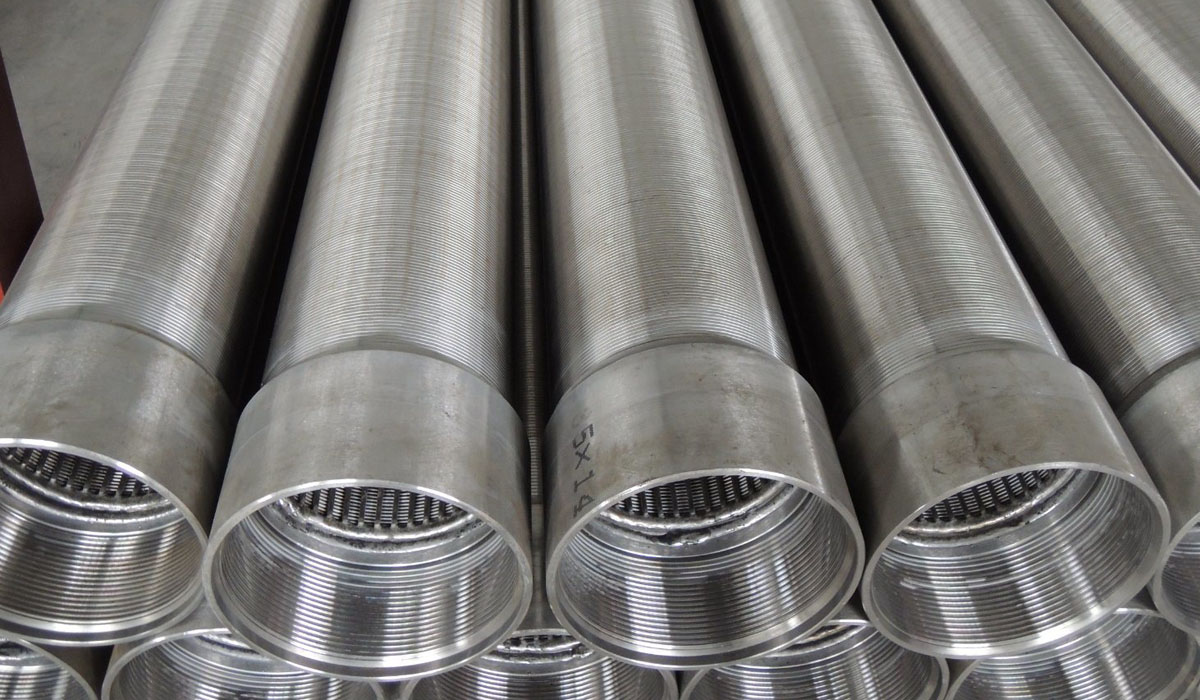
The water well screen is an important component of a well that allows water to flow into the well while preventing sediment and other debris from entering. The screen is typically located at the bottom of the well, near the aquifer. This is done to ensure that only clean water is collected and that any sediment or dirt is filtered out. The screen is typically made from a perforated pipe or other type of material that has small openings to allow water to pass through while blocking sediments from entering. Abter well screen is manufactured with a continuous v-shaped slot to reduce the entrance velocity of water and encrustation rates. Besides, Filson well screen has a large surface area without clogging, thus provide superior filtration performance. Well screen slot size selection is a critical step, typically based on the particle size analysis of the formation sample. With the standard slot size range from 0.005” to 0.5”, Filson well screen can control sand particles and silt from the well perfectly. Advantages of Water Well Screens 1. The V-shape section plane of water well screens creates the continuous slot, which can avoid blockage and make sure of the unimpeded water. Read more
Geothermal Pipe Based Screen | Sand Free Pipe Based Well Screen
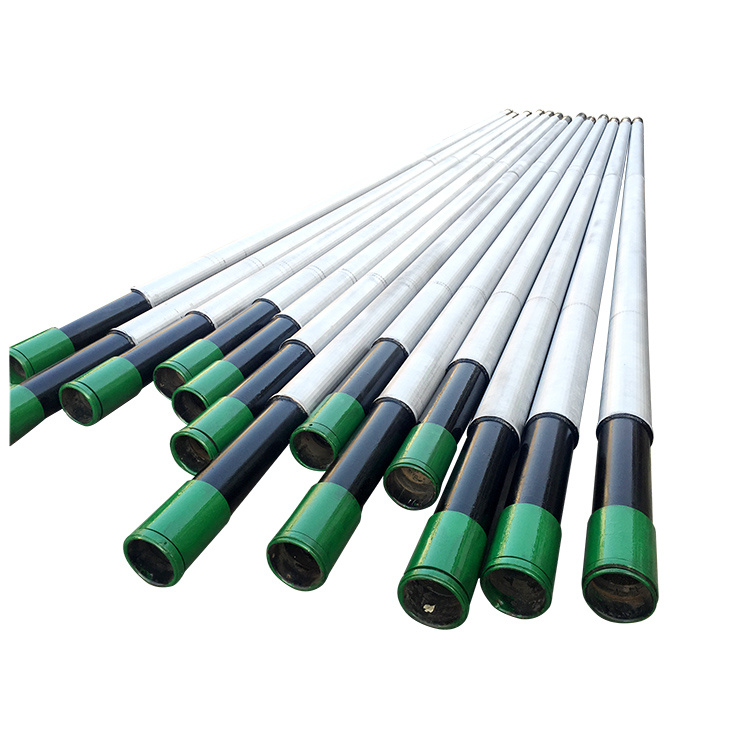
PARAMETER Geothermal Pipe based well screen specification: Nominal Diameter Pipe OD(mm) Weight lb/ftW.T[mm] Hole size In Holes per foot Total Areaofholes in2/ft Screen OD (in) 2-3/8 60 4.6[4.83] 3/8 96 10.60 2.86 2-7/8 73 6.4[5.51] 3/8 108 11.93 3.38 3-1/2 88.9 9.2[6.45] 1/2 108 21.21 4.06 4 101.6 9.5[5.74] 1/2 120 23.56 4.55 4-1/2 114.3 11.6[6.35] 1/2 144 28.27 5.08 5 127 13[6.43] 1/2 156 30.63 5.62 5-1/2 139.7 15.5[6.99] 1/2 168 32.99 6.08 6-5/8 168.3 24[8.94] 1/2 180 35.34 7.12 7 177.8 23[8.05] 5/8 136 42.16 7.58 7-5/8 194 26.4[8.33] 5/8 148 45.88 8.20 8-5/8 219 32[8.94] 5/8 168 51.08 9.24 9-5/8 244.5 36[8.94] 5/8 188 58.28 10.18 10-3/4 273 45.5[10.16] 5/8 209 64.79 11.36 13-3/8 339.7 54.5[9.65] 5/8 260 80.60 14.04 What is Geothermal Well Screen? Geothermal well screens are an essential component of a geothermal well system. They are used to filter and protect the geothermal well from debris and other contaminants that can be harmful to the system. Sand Control Screens are designed to be durable and reliable, providing long-term protection for the well. The geothermal well screen is a cylindrical tube made of a perforated metal or plastic material. The perforations are designed to allow Read more
Pre-packed well screen | Wire Wrapped Pre Packed Sand Screen
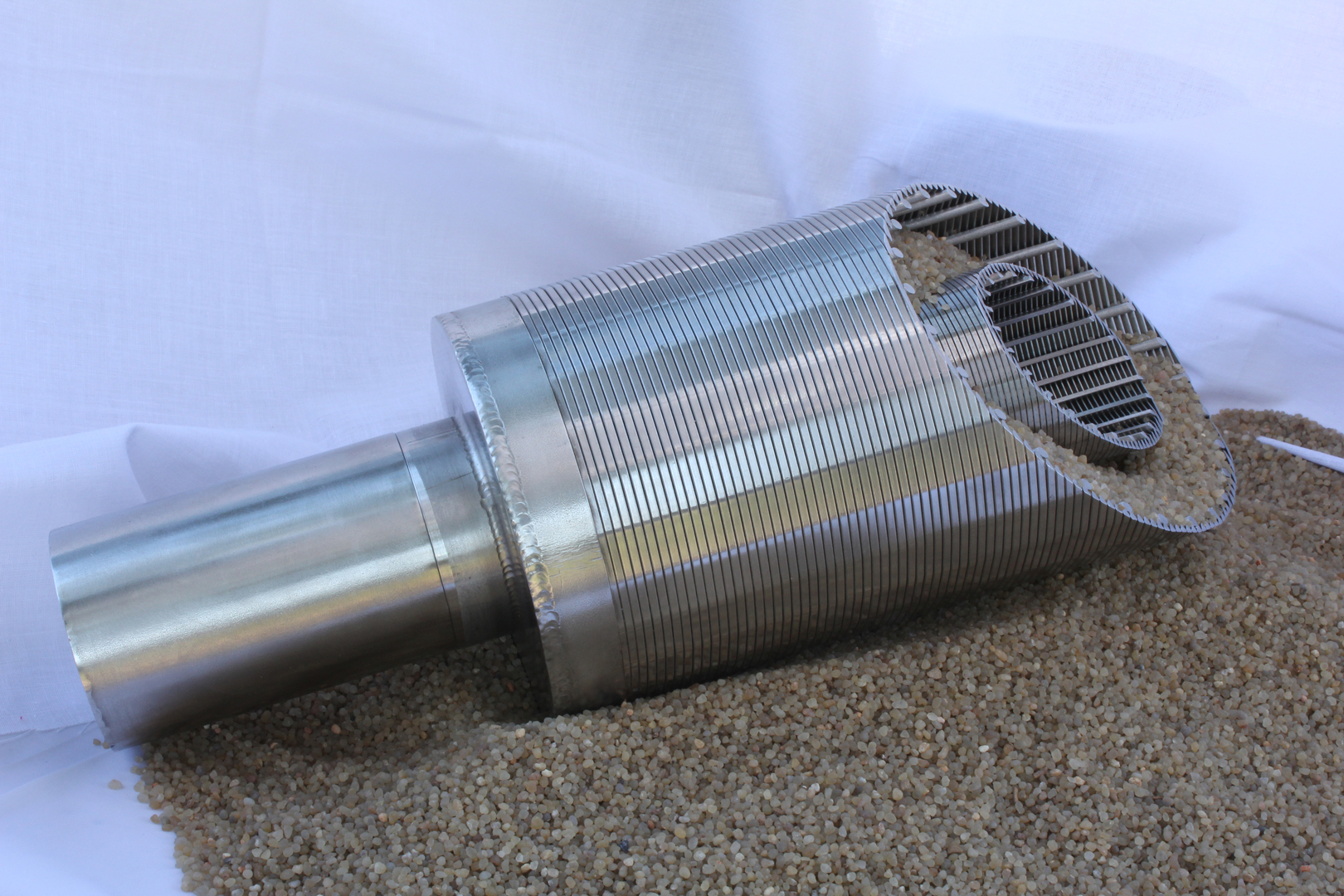
Pre Packed Sand Screen contains perforated base pipe, inner and outer screen jackets and graded sand between the jackets. It is a modification of wire wrapped screen which is used in well sorted sand or stand-alone completion. Graded sand, with or without resin coating, is considered as a filter for reservoir particles. Wire wrapped pre Pre Packed Sand Screen is used in wells where conventional gravel packing is not feasible or economical. The thickness of gravel layer can be varied to meet special requirement. What Is the Function of Gravel Pack? Gravel packing is one of popular sand-control technique used in oil, water and gas wells. It stabilizes the borehole and filters the sand from the flow, only allowing very fine particles in. Pre Packed Sand Screen wire wrapped sand screen brings it into full play in maximizing production as well as controlling the sand. Diameter: 168mm Material: stainless steel,carbon steel,etc Slot: 0.2mm End Connection: thread,coupling,etc thickness: 10mm Pre Packed Sand Screen PRODUCT SPECIFICATIONS Base Pipe Gravel Pack Perforations Screen OD (in.) ID (in.) Weight (lbs.) Coupling OD (in.) Thickness (in.) Size (in.) Holes/ft. OD (in.) Cylinder Area (sq. in./ft) 006 GA Inlet Area (sq. in./ft) 1.9 1.61 2.75 Read more
Well Screen Oil Casing , Pipe Based ,Sand Control,API 5CT
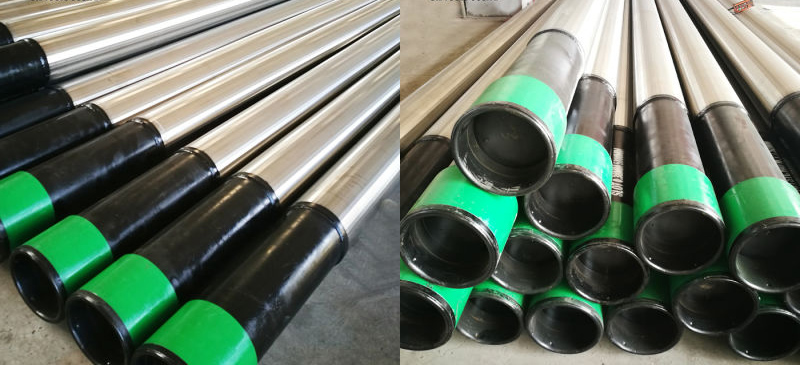
1. Grade: SUS 304 SUS304L, SUS316, SUS316L, or carbon steel 2. Slot Size: 0.02mm~15mm 3. Standard: DIN AISI ASTM 4. Certification: ISO9001, API 5CT 5.Pipe based well screens consist of base pipe,all-welded wedge wire screen and supporting rod.The base pipe is perforated or slotted API casing pipe,the base pipe can be stainless steel or carbon steel API 5CT casing.The all-welded wedge wire screens are welded together with base pipe by supporting rod. 6.Features of Pipe Based Well Screens: 1)Higher filtering accuracy: all-welded wedge wire screens as screen jacket with vee opening design makes the filtering accuracy higher,which can control sand better. 2)Excellent strength and resistance to deformation: The base pipe inside,the outside can be protected with the protection jacket added according to requirements,the integrated strength of the perforated base pipe only decreases 2~3% compared with the standard casing/oil tubing,so the pipe based well screens have enough integrated strength to resist to the pressure caused by strata.Even if some part of the well screens deformed,the slot of this part will not be widened,which makes higher sand controlreliability 3)More choices: the material of screen jacket can be stainless steel or carbon steel,the material can be chosen as per customers'requirement. 4)The smaller slot Read more
Slotted Casing Pipe | Slotted Liner Well Screen – API 5CT
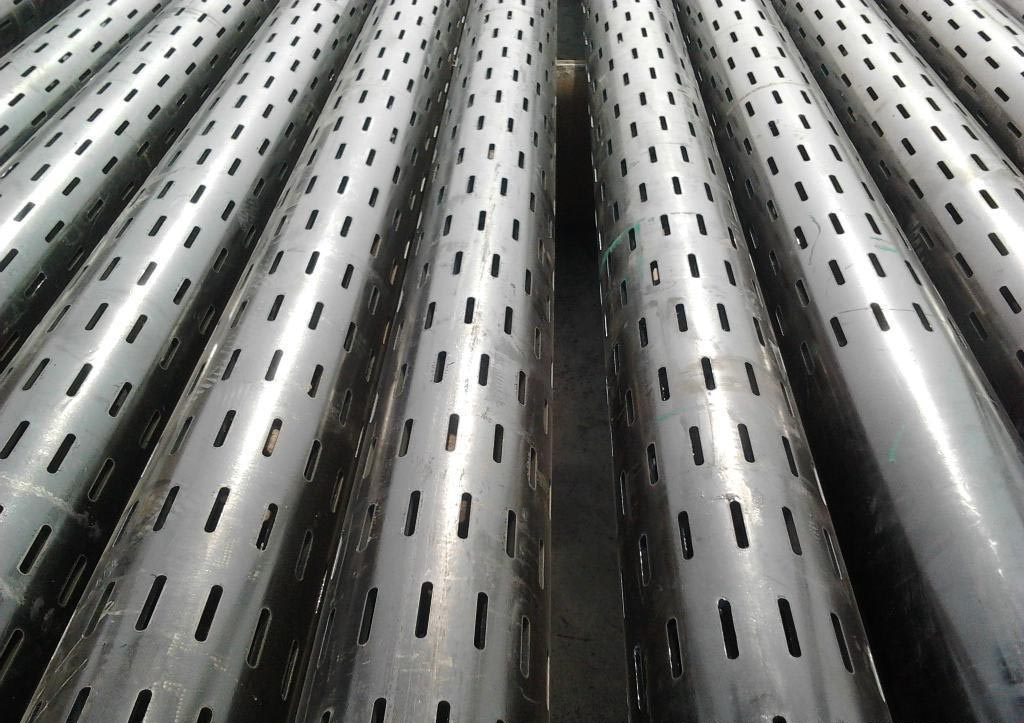
1. Introduction of Slotted Casing Pipe Casing pipe is a large-diameter pipe that serves as the structural retainer for the walls of oil and gas wells, or well bore. It is inserted into a well bore and cemented in place to protect both subsurface formations and the wellbore from collapsing and to allow drilling fluid to circulate and extraction to take place. Slotted casing pipe is a type of casing pipe that has slots machined into its surface. These slots are used to help control the flow of water, oil, and gas in a well bore. The slotted casing pipe is designed to allow water, oil, and gas to flow through the slots while preventing sand and other debris from entering the well bore. Slotted casing pipe is commonly used in oil and gas wells, water wells, and geothermal wells. 2. Types of Slotted Casing Pipe There are two main types of slotted casing pipe: open slot and perforated slot. Open slot casing pipe has slots that are cut into the surface of the pipe in a straight line. These slots are usually spaced evenly apart and are typically about 1/4 inch wide and 1/4 inch deep. Perforated slot Read more
Perforated Casing Pipe | Perforated Well Screen Piping
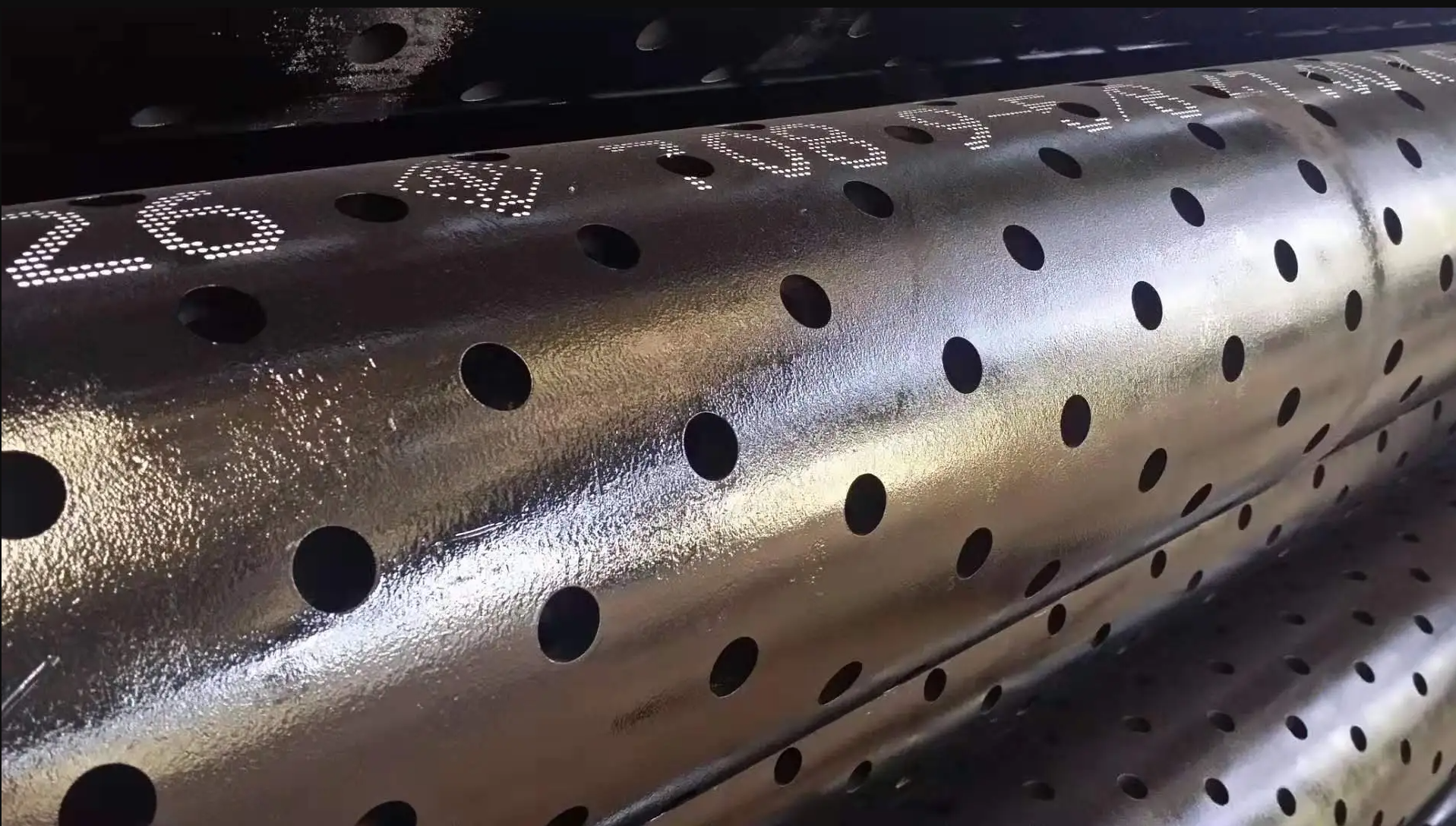
Applications of Perforated Pipe: Perforated well screen is a type of filter used in oil and gas wells. It is designed to control the flow of oil and gas from the well, while preventing sand and other debris from entering the well. perforation in the context of oil wells refers to a hole punched in the casing or liner of an oil well to connect it to the reservoir. Creating a channel between the pay zone and the wellbore to cause oil and gas to flow to the wellbore easily. In cased hole completions, the well will be drilled down past the section of the formation desired for production and will have casing or a liner run in separating the formation from the well bore. The final stage of the completion will involve running in perforating guns, a string of shaped charges, down to the desired depth and firing them to perforate the casing or liner. A typical perforating gun can carry many dozens of explosive charges. Commonly, perforation guns are run on E-line as it is traditional to use electrical signals from the surface to fire the guns. In more highly deviated wells, coiled tubingmay be used. Newer technologies Read more

